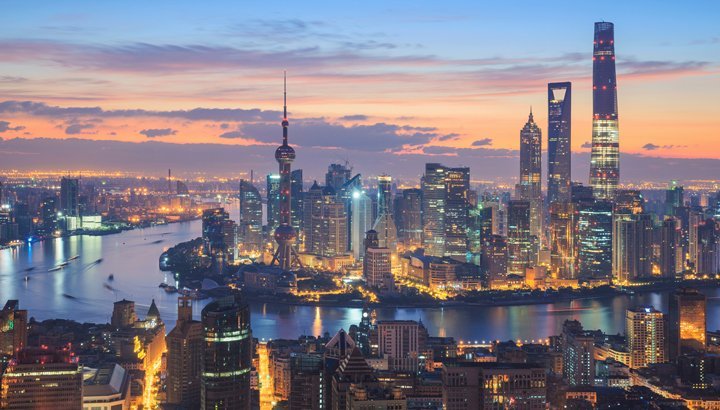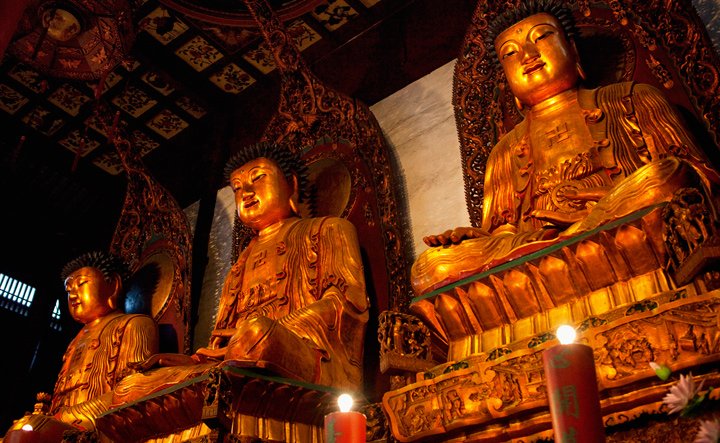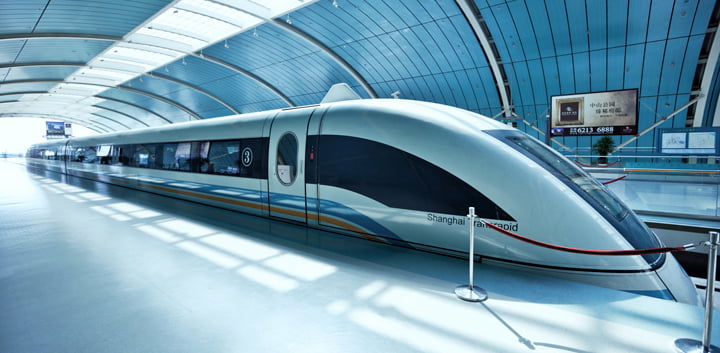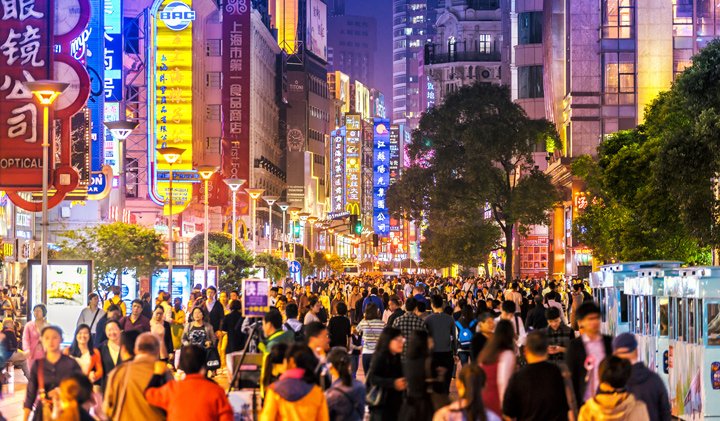
Gay Shanghai City Guide
Planning a trip to Shanghai? Then our gay Shanghai city guide is for you

Shanghai 上海
Shanghai sits at the mouth of the Yangtze River in the middle of China's coastline. It is the largest city in the world with a population of over 17 million within its central area.
Shanghai has experienced rapid development over the last couple of decades and is now significant global centre for business, finance, IT, culture, media and fashion.
The city is split in two by the Huangpu River. The west side of the river is called Puxi and right side is Pudong. Pudong is home to new high-rise developments whilst Puxi is the older, more historical part of the city.
Gay Rights in China
For information about gay rights in China, click here to go to the gay Beijing City Guide page.
Gay Scene
Shanghai has probably the largest gay scene in mainland China with a growing number of gay & gay-friendly bars and nightclubs catering for most tastes.
However, the gay scene in Shanghai changes quickly, and there is no particular 'gay district'. A few well-established gay venues can be found in the Old French Concession area - Shanghai's richest and most vibrant neighbourhoods.
 Jade Buddha Temple
Jade Buddha Temple
Getting to Shanghai
Shanghai's main international airport - Pudong - is located 40km to the east of the city. The airport has two terminals connected by a long walkway (and shuttle bus service).
The airport is connected to the city by the Maglev train. The train uses magnetic levitation technology and does not touch the tracks. It completes its 30km journey to the Longyang Road Metro station in just 7 minutes - travelling at up to 431 km/hour. The train operates daily, departing every 15-30 minutes.
 Maglev Airport Train
Maglev Airport Train
Be aware that as you walk to the airport station you may be approached by individuals claiming the train is not operating and trying to get you to take their taxi service. Ignore them.
Shanghai Hongqiao International Airport services mostly domestic flights and is connected to the city metro system.
The all-new bullet trains started operations between Shanghai and Beijing with a journey time of just under 5 hours. There is also an overnight train service to and from Hong Kong.
Getting around Shanghai
Shanghai has an extensive metro system with 12 lines. The service is fast, cheap and air-conditioned. Most announcements and signs are in both Mandarin and English. Avoid rush hours when it can get very busy.
Taxis are widely available and cheap by international standards. If you don't speak Mandarin, then it is a good idea to have your destination written down in Chinese characters or have a map that you can point to.
Where to Stay in Shanghai
Shanghai has a huge selection of hotels that are very affordable by Western standards. Most travelers stay near the French Concession, Xintianti or The Bund. Many 5-star hotels can be found in Pudong area.
In any case, choose at least a 3.5-star accommodation. Visit our Gay Shanghai Hotels and Gay Shanghai Luxury Hotels pages for recommendations.
Things to See & Do
The Bund - riverside area that is home to dozens of historical buildings along the Huangpu River.
Dongtai Lu Antiques Market
Fuxing Park - Tai Chi followers gather from 6am to take part in synchronised exercise.
Jade Buddha Temple - the most famous Buddhist temple in Shanghai and home to the jade Buddha statues brought to China from Myanmar in 1882. Pictured above.
Nanjing Road Pedestrian Mall - shopping mall with over 600 stores
 Nanjing Road Pedestrian Mall
Nanjing Road Pedestrian Mall
People Square - the cultural centre of the city and location of the Shanghai Museum.
Shanghai Grand Theatre and Museum - museum filled with Chinese artefacts, art, sculptures and more.
Yu Yuen Garden - large rocks, curved walls and beautiful foliage define this Chinese garden.
Weather
There are four seasons in Shanghai - a warm spring, a hot rainy summer, a cool autumn and a generally cold winter. July and August are usually the hottest months with temperature regularly above 35°C. The coldest months are January and February.
Weather-wise, the spring from March to May is regarded as the best time to visit the city.
Visa
Most visitors to China require a tourist visa that needs to be obtained prior to arrival. You must have a passport with at least 6 months remaining and available space for the visa, a recent passport-sized photo with a white background, and in most cases, hotels booking and return air ticket documents.
Apply at your local Chinese Embassy or Consulate. Postal applications are not accepted. Full details can be found at the official visa website - www.visaforchina.org
Drinking Water
Do not drink Shanghai's tap water unless first boiled. Keep to bottled water.
Electricity
The domestic power supply is 220V. Sockets are three flat pin Chinese standard.
Operator Assistance
Shanghai offers an exceptionally useful resource for visitors called the Shanghai Call Center. Store this number in your phone +86 021 962 288. After a short message in Mandarin, you will hear English instructions, but operators are available who talk several European languages including Spanish and French.
The call centre can help with bus, metro or taxi directions, information on tourist attractions and will even offer a free translation service.
Join the Travel Gay Newsletter
Have we got something wrong?
Are we missing a new venue or has a business closed? Or has something changed and we have not yet updated our pages? Please use this form to let us know. We really appreciate your feedback.